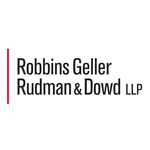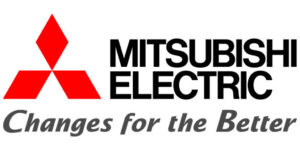STX INVESTOR ALERT: Robbins Geller Rudman & Dowd LLP Files Class Action Lawsuit Against Seagate Technology Holdings plc and Announces Opportunity for Investors with Substantial Losses to Lead the Seagate Class Action Lawsuit

SAN DIEGO–(BUSINESS WIRE)–Robbins Geller Rudman & Dowd LLP announced that it has filed a class action lawsuit seeking to represent purchasers of Seagate Technology Holdings plc (NASDAQ: STX) common stock between September 15, 2020 and October 25, 2022, inclusive (the “Class Period”). Captioned UA Local 38 Defined Contribution Pension Plan v. Seagate Technology Holdings plc, No. 23-cv-3:23-cv-03431 (N.D. Cal.), the Seagate class action lawsuit charges Seagate and certain of its top executives with violations of the Securities Exchange Act of 1934.
If you suffered substantial losses and wish to serve as lead plaintiff, please provide your information here:
https://www.rgrdlaw.com/cases-seagate-technology-holdings-plc-class-action-lawsuit-stx.html
You can also contact attorney J.C. Sanchez of Robbins Geller by calling 800/449-4900 or via e-mail at jsanchez@rgrdlaw.com. Lead plaintiff motions for the Seagate class action lawsuit must be filed with the court no later than September 8, 2023.
CASE ALLEGATIONS: Seagate is a leading global supplier of data storage products, including hard disk drives (“HDDs”). By the start of the Class Period, Huawei Technologies Co. Ltd. (“Huawei”), a Chinese multinational technology, had emerged as a significant global purchaser of data storage products, including HDDs, produced by Seagate and other U.S.-based suppliers. On May 16, 2019, Huawei and certain of its non-U.S. affiliates were added to the U.S. Department of Commerce Bureau of Industry and Security’s (“BIS”) Export Administration Regulations (“EAR”) Entity List (“Entity List”). The EAR Entity List is a list of names of certain foreign persons and entities that are subject to specific license requirements for the export, re-export, and/or transfer (in-country) of specified items. The Entity List designation was based on a determination made by multiple U.S. government agencies “that there is reasonable cause to believe that Huawei has been involved in activities contrary to the national security or foreign policy interests of the United States.” Then, on August 17, 2020, the BIS imposed export controls over certain foreign-produced items “to better address the continuing threat to U.S. national security and U.S. foreign policy interests posed by Huawei and its non-U.S. affiliates.”
As the Seagate class action lawsuit alleges, defendants throughout the Class Period made false and/or misleading statements and/or failed to disclose: (i) the nature and magnitude of Seagate’s HDD sales to Huawei, including that Seagate experienced a significant acceleration in sales to Huawei immediately after the BIS rules went into effect and Seagate’s competitors stopped selling to Huawei; and (ii) that the underlying details of Seagate’s HDD manufacturing process, including the use of covered U.S. software and technology in “essential ‘production’” processes, rendered its sales to Huawei in violation of the BIS export rules As a result, Seagate was in blatant violation of the BIS export rules which resulted in an ongoing investigation by the U.S. Department of Commerce and exposed Seagate to hundreds of millions of dollars in fines and penalties.
On October 26, 2022, Seagate disclosed that it received a Proposed Charging Letter from the BIS alleging that Seagate violated the EAR by providing Seagate HDDs to “a customer and its affiliates listed on the BIS Entity List between August 2020 and September 2021.” On this news, the price of Seagate common stock fell nearly 8%, damaging investors. Over the following three trading days, Seagate’s stock price continued to drift lower, falling an additional nearly 7%.
The plaintiff is represented by Robbins Geller, which has extensive experience in prosecuting investor class actions including actions involving financial fraud. You can view a copy of the complaint by clicking here.
THE LEAD PLAINTIFF PROCESS: The Private Securities Litigation Reform Act of 1995 permits any investor who purchased Seagate common stock during the Class Period to seek appointment as lead plaintiff of the Seagate class action lawsuit. A lead plaintiff is generally the movant with the greatest financial interest in the relief sought by the putative class who is also typical and adequate of the putative class. A lead plaintiff acts on behalf of all other class members in directing the Seagate class action lawsuit. The lead plaintiff can select a law firm of its choice to litigate the Seagate class action lawsuit. An investor’s ability to share in any potential future recovery of the Seagate class action lawsuit is not dependent upon serving as lead plaintiff.
ABOUT ROBBINS GELLER: Robbins Geller Rudman & Dowd LLP is one of the world’s leading complex class action firms representing plaintiffs in securities fraud cases. The Firm is ranked #1 on the most recent ISS Securities Class Action Services Top 50 Report for recovering more than $1.75 billion for investors in 2022 – the third year in a row Robbins Geller tops the list. And in those three years alone, Robbins Geller recovered nearly $5.3 billion for investors, more than double the amount recovered by any other plaintiffs’ firm. With 200 lawyers in 9 offices, Robbins Geller is one of the largest plaintiffs’ firms in the world and the Firm’s attorneys have obtained many of the largest securities class action recoveries in history, including the largest securities class action recovery ever – $7.2 billion – in In re Enron Corp. Sec. Litig. Please visit the following page for more information:
https://www.rgrdlaw.com/services-litigation-securities-fraud.html
Attorney advertising.
Past results do not guarantee future outcomes.
Services may be performed by attorneys in any of our offices. Contacts
Robbins Geller Rudman & Dowd LLP
655 W. Broadway, Suite 1900, San Diego, CA 92101
J.C. Sanchez, 800-449-4900
jsanchez@rgrdlaw.com








